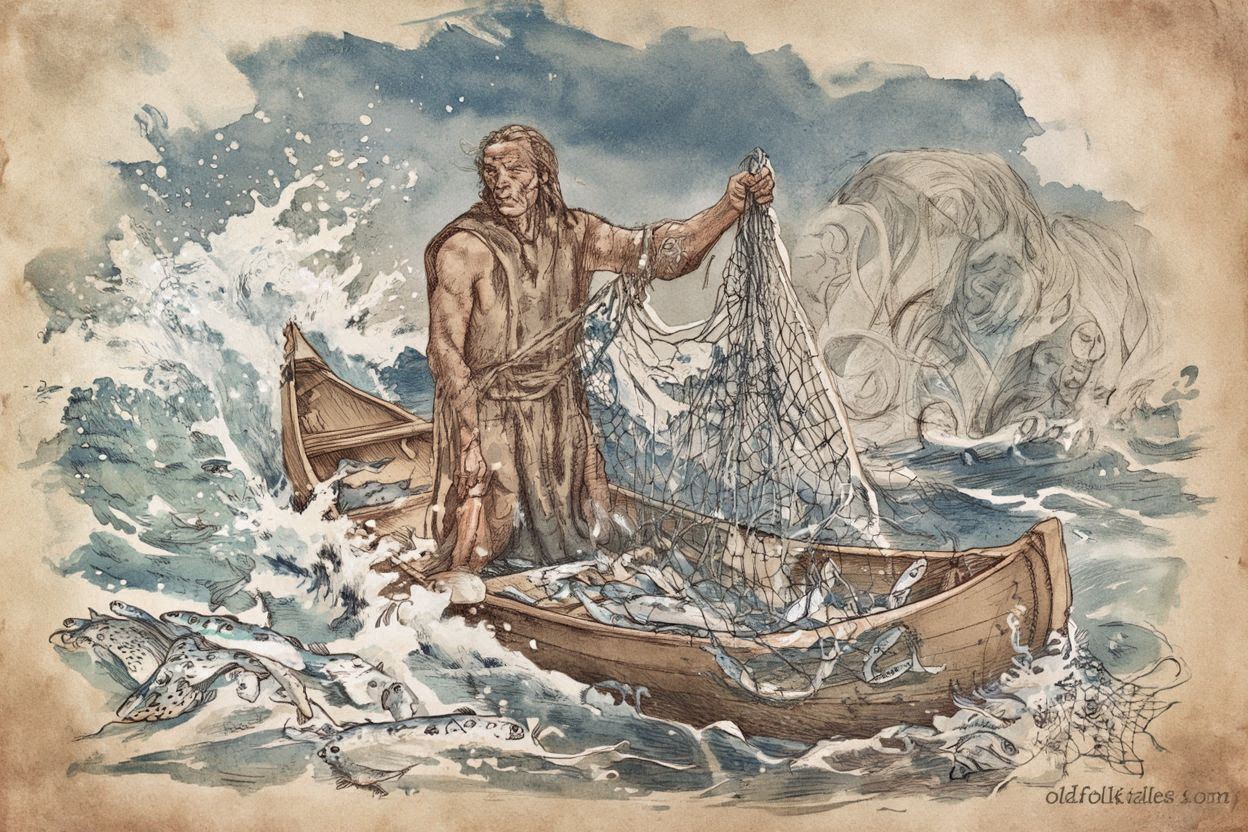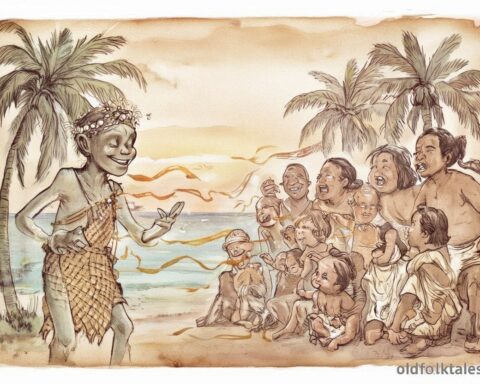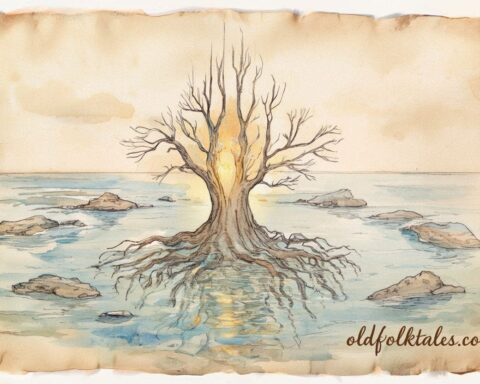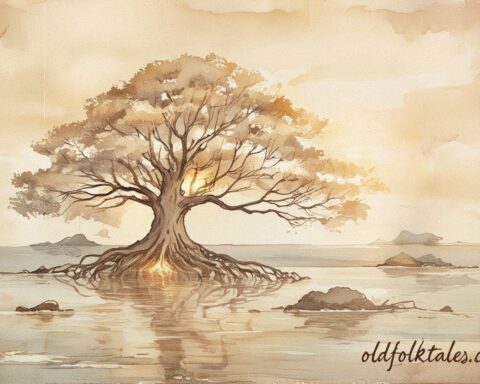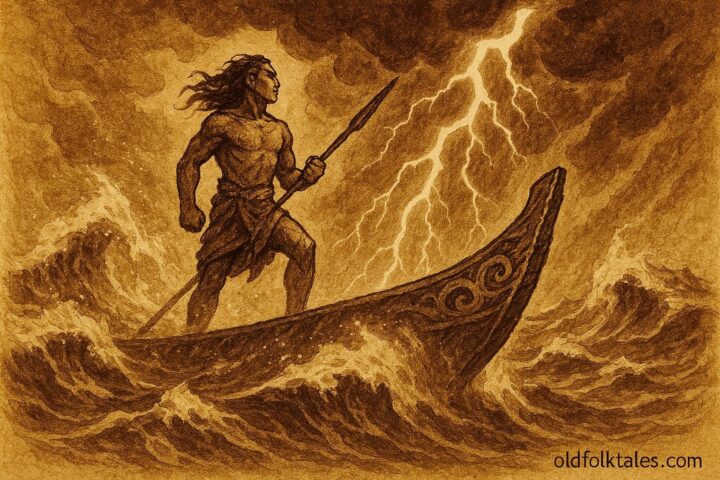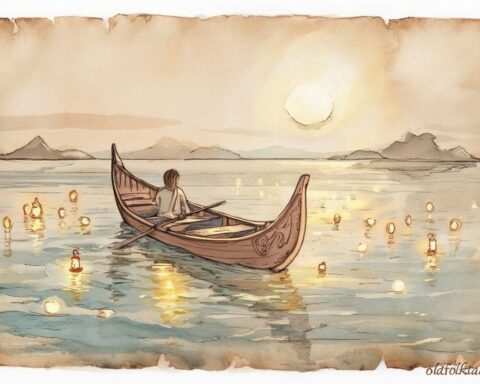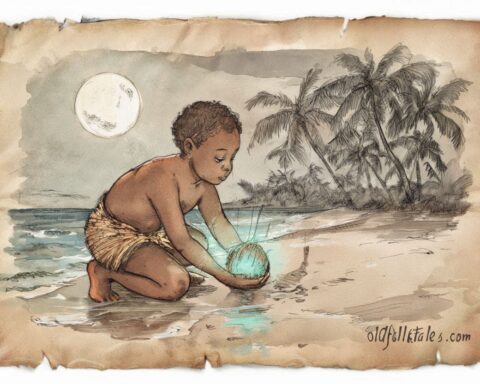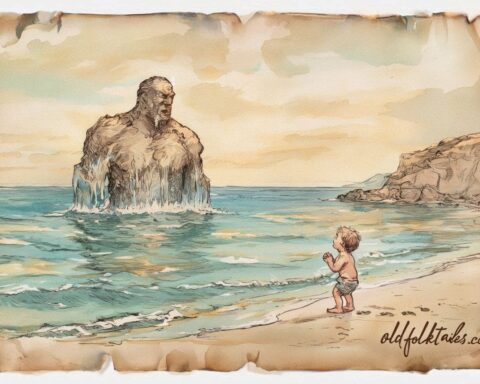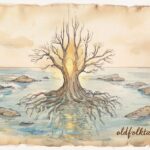Long ago, when the islands of Palau were young and the sea shimmered like polished glass, there lived a powerful chief named Osilek. He ruled over a great village by the coast, where his people prospered through fishing and trade. Osilek was wise in council and strong in spirit, but his pride often cast a shadow over his heart.
Among all his possessions, Osilek cherished his fishing net. It was vast beyond imagination woven from the strongest vines, reinforced with strands of coconut fiber, and blessed by the village priest. The people said it could catch an entire reef’s worth of fish in a single cast. With this mighty net, Osilek believed no other chief could rival him.
At first, he used the net for the good of his people. The catches were shared among families, and no one went hungry. But as the seasons passed, Osilek’s desire grew. He began to think that the sea belonged to him alone.
One morning, Osilek stood before the waves and declared, “The ocean has given me strength, and my net will claim all its treasures. From this day, no fish shall swim free from my reach.”
The elders who stood nearby were uneasy. One of them, an old fisherman named Bulebas, stepped forward. “Chief, the sea belongs to no one. The spirits guard its balance. Take only what you need, and you will have enough for all time.”
But Osilek only laughed. “The spirits favor the strong. My net is proof of that.”
Ignoring the elder’s warning, he ordered his men to prepare for the grandest fishing expedition ever attempted. They carried the giant net to the shore, chanting songs of power. The sun gleamed on the waves as if to test their courage.
Osilek climbed into his canoe, gripping the net’s edge with pride. His men followed, paddling until they reached the deep blue beyond the reef, waters said to belong to the spirits themselves.
When they cast the enormous net, it spread across the sea like a shadow, enclosing the fish in every direction. The water churned and sparkled as countless fish struggled within it. Osilek’s eyes shone with triumph. “At last,” he cried, “the sea’s bounty is mine!”
But then, a strange silence fell. The wind stopped, and the sky darkened. From beneath the water came a deep rumble, like the growl of something ancient awakening. The waves rose higher, and the fishermen clung to their canoes in fear.
Suddenly, the net jerked violently. The vines creaked and stretched as if pulled from below by unseen hands. Osilek shouted, “Hold it steady! The catch is too great!” But the men’s strength was no match for what stirred beneath.
In the depths, the sea spirits had awoken. They were angered by Osilek’s greed and his claim of dominion over their realm. One by one, they struck at the net, tearing its fibers apart with invisible claws. The great net split in the middle with a thunderous snap. Fish of every color burst free, scattering in all directions like living jewels.
Osilek’s canoe rocked wildly. The sea rose into a towering wave that crashed upon them, tossing the chief into the water. He struggled, gasping for air, until at last the ocean carried him gently back to shore.
When the storm passed, the beach was littered with broken pieces of the once-mighty net. Osilek sat upon the sand, silent and trembling. The villagers gathered around him, their faces heavy with sorrow.
The elder Bulebas approached and placed a hand upon his shoulder. “Chief, the sea gives, and the sea takes. It is not strength that wins favor, but humility. When you sought to own what cannot be owned, you lost what truly mattered.”
Osilek bowed his head. For many days he said nothing. But when the next full moon rose, he called the people together. “I was blind with pride,” he confessed. “From this day, the sea’s bounty shall be shared, and no man shall cast his net without prayer.”
To atone, he gathered the torn pieces of his great net and buried them beneath the sand, offering a shell and a chant to the spirits. The elders say that from those buried fibers grew the reefs that now guard Palau’s shores, where fish flourish freely, beyond the reach of greed.
From that time on, Osilek ruled with gentleness and wisdom. He taught that true leadership is not measured by how much one can take, but by how wisely one gives. The story of Osilek and his net remains carved on Palauan storyboards to this day, a reminder that power without humility leads only to loss.
Moral Lesson
True strength lies not in possession or dominance but in restraint and respect. Greed blinds even the wisest of leaders, while humility restores harmony between humans and the forces of nature.
Knowledge Check
1. Who was Chief Osilek?
He was a powerful Palauan chief known for his enormous fishing net.
2. What did Osilek’s net symbolize?
It symbolized strength, control, and eventually the danger of unchecked greed.
3. Why did the sea spirits become angry?
They were angered because Osilek tried to claim the sea’s bounty for himself.
4. What happened to Osilek’s great net?
It tore apart after the spirits of the sea struck it in anger.
5. How did Osilek atone for his pride?
He buried the torn pieces of his net and vowed to respect the sea and share its gifts.
6. What is the main message of the story?
That power must be guided by humility, and nature rewards balance over greed.
Source: Adapted from Traditional Palauan Storyboards: Tales of Chiefs and Spirits by the Belau National Museum (2009).
Cultural Origin: Palauan (Palau, Micronesia)
